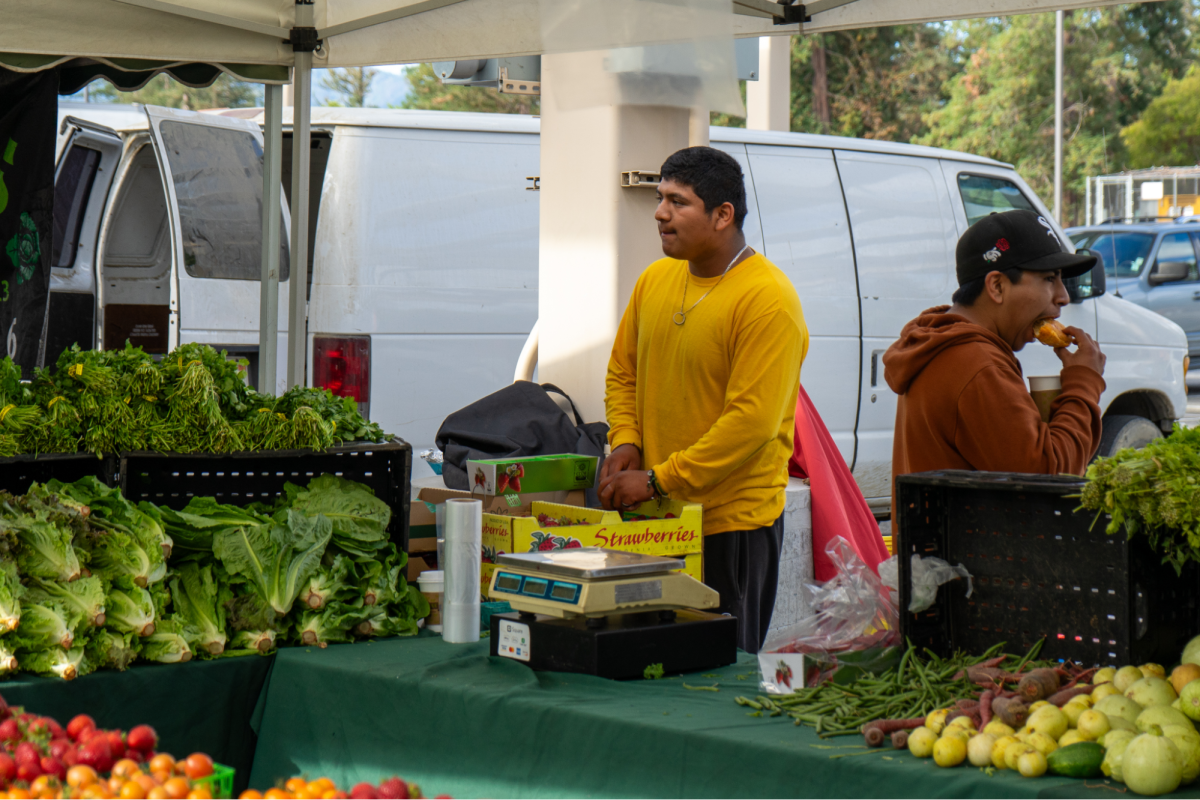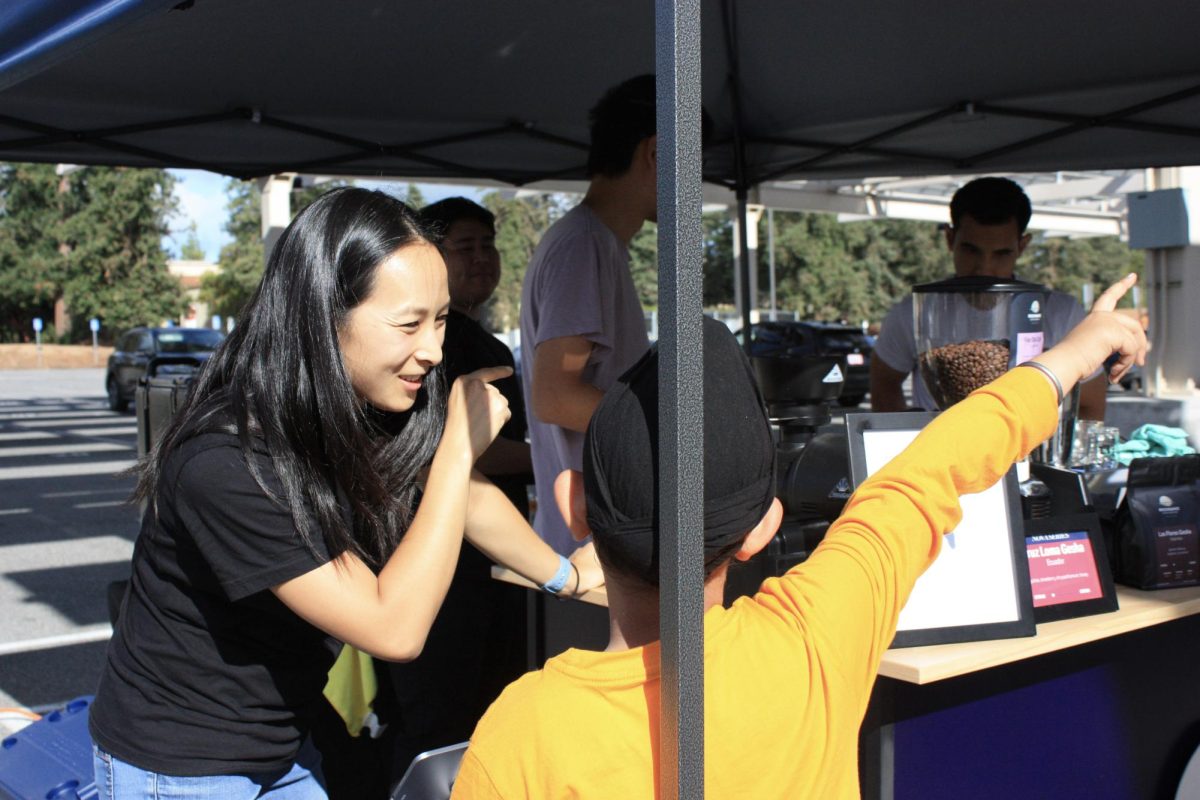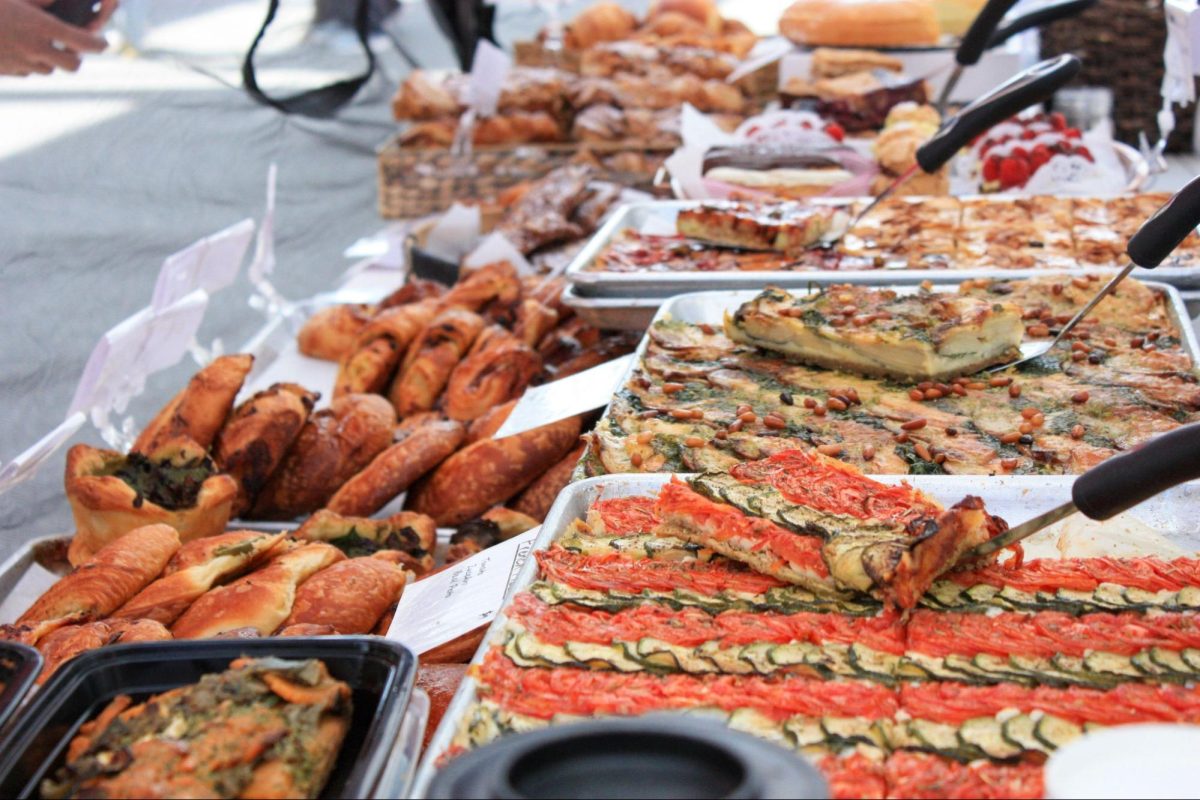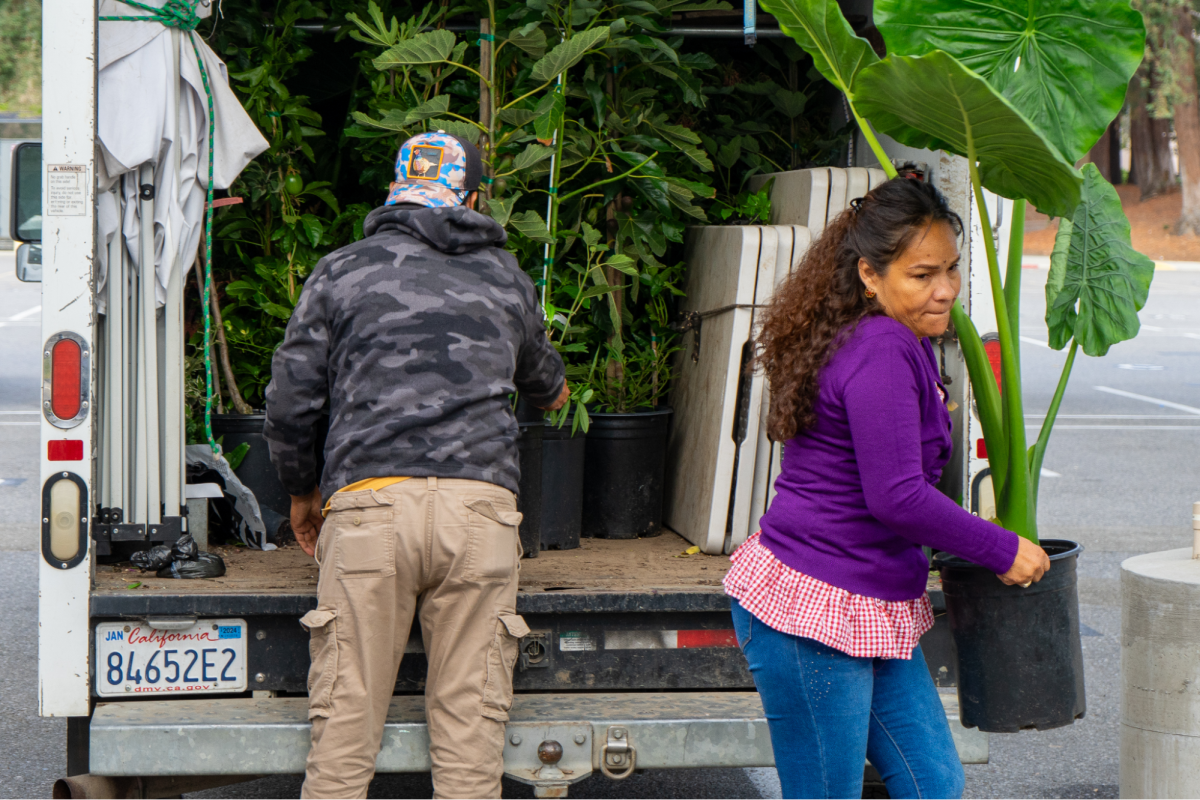
The stories behind the Cupertino Farmers Market
Produce
Nestled in the fertile landscape of Salinas, California, Ramiro Lopez spends his afternoons harvesting produce from the rows of crops on Gallardo’s Organic Farm. His main focus is strawberries and tomatoes, but onions, peppers and beetroots also line his farm’s stand, amongst other vegetables. Despite not attending farming school, Lopez learned the ropes from his uncle and other elders at and around the farm.
“I came from Mexico eight years ago,” Lopez said. “My aunt brought me here, because I moved there when I was little. [When] I came back, they had their business already set. So I’ve just been helping them.”
Gallardo’s Organic Farm initiates its planting cycle with young, organic seedlings sourced from another grower. From there, the plants’ growth depends on seasonal weather and rainfall. For example, tomatoes take two to three months to end up in the hands of customers. However, overabundant rainfall can sometimes pose a challenge, rendering produce unsuitable for sale at farmers markets.
After harvesting the produce, a team of workers washes the produce, and to ensure freshness, the produce is trucked out the next morning for delivery, making its way to farmers markets ranging from Sacramento to Pacific Grove.
At the Cupertino Farmers Market, Lopez unloads strawberries and tomatoes not only from his farm, but also from other farms, such as nearby Alberto’s Farms. He says vendors at the farmers market help each other out to bring the products to market, and he hopes for the community to understand the work that goes into each batch of produce.
“Farming ain’t easy,” Lopez said. “So I’d like this community to understand. For some of them, they just want everything cheap, but I would like for them to understand how hard [growing produce] is.”
Coffee
Avid coffee drinkers, husband and wife and co-founders of Moonwake Coffee Roasters co-owners Ming Wood and MVHS alum ‘09 Mabel Yeung realized during the pandemic that many coffee products on the market did not suit their personal preferences. Taking matters into their own hands, they started and expanded their business through selling coffee products to friends and family, as well as building their own coffee cart a few months ago.
“[Being here] is a little bit of a throwback because I grew up in Cupertino,” Yeung said. “We were looking at a lot of different farmers markets, and [Cupertino] was great in terms of flexibility for vendors and [open communication]. We appreciate the organization, the team behind it, and [the support] for our business.”
Their process begins with extensive sampling from various coffee importers to determine the best beans for their products. Previously, Moonwake Coffee Roasters used a more general approach to roasting, primarily selling medium roast coffee. However, they later expanded to incorporate new and unique kinds of roast profiles, – tailoring each to specific sources of coffee, from fruity flavors to floral flavors.
“As we started diving deeper into the world of coffee, there were a lot of different types of coffee out there,” Wood said. “Roasting in different profiles has been really exciting, because we can roast things a little bit lighter. As we’ve been dabbling more into different [coffee] types, we really try to play around with how to best bring out the flavor.”
Currently, the most difficult part for Moonwake Coffee Roasters is justifying the value of premium coffee to their customers. Yeung hopes she can make more people think about coffee in a new and special way.
“A lot of people in the past, including myself, viewed coffee as a convenience,” Yeung said. “So what we’re trying to do — which is [reflected] in our name — is to give people a chance to sit and reflect a bit. We want to give people a moment to just appreciate and find a respite from their problems through food and drink, hopefully through a physical place.”
Bakery
From savory crepes and fresh-baked bread to chocolate pastries, Adorable French Bakery is built on food and love. Originating from France, Adorable French Bakery began when a couple wanted to bring their love of baked goods to the U.S. Instead of a physical storefront, the bakery currently sells its goods at various farmers markets across the Bay Area. Lucia Tabel is an employee at Adorable French Bakery and runs the booth at the Cupertino Farmers Market. She decided to bring her passion for baking to being a part of Adorable French Bakery.
“I have a passion for baking at home,” Tabel said. “I like to cook, and my friend got hired at an Italian restaurant where one of the employees at the time was also employed at [Adorable French Bakery]. They were talking about my baking, [and] gave the boss’s number to my friend. I got called and [was hired].”
Despite the hot weather and sometimes slow pace of the market, Tabel enjoys its easy-going nature. For Tabel, one of the best parts of her job is the community and the positive interactions with customers she has working in the Cupertino Farmers Market.
“Just interacting with the community and that liveliness, and personal connection [is what I love],” Tabel said. “I feel like [I’m] personally selling to somebody versus when [I’m] not at a farmers market, where there isn’t that kind of engagement and vibe.”
Plants
The story of Marbin Hernandez’s plants begins in Watsonville, California, where his plants spend up to three months being nurtured by the golden Californian sun. Hernandez spends his days tending to his plants, using his years of experience to nurture potted plants ranging from perennial fruit trees, a popular choice for Cupertino customers, to cacti. His business has only been operating for three years, and he says the independence of owning one was what finally motivated him to start his own nursery.
“Me and my wife [were] working for a long time for [a] nursery, working [as a] driver for the sprayer,” Hernandez said. “One day, me and my wife wanted to [run a] nursery. [No] working for another company — [just] for you.”
Hernandez says that the process of transporting the plants is simple. After loading them into his white box truck, he drives them to farmers markets like the one in Cupertino. From there, Hernandez’s reward for his work is seeing the smiles on his customers’ faces.
“The customers come every week [to] buy plants — different kinds of plants,” Hernandez said. “[I’m] happy to [bring] that revelation to the customers.”

















